Following in the wake of the Chilcot Report into the Iraq War, British MPs have issued a substantial condemnation of David Cameron and Britain’s key role in the collapse of Libya.
It comes far too late; but it is nevertheless a significant moment and acknowledgement of the utter disaster that Britain played a substantial role in, even if France was the primary driver (of what I have called and will continue to call ‘the crime of the century’).
The report by the Foreign Affairs Select Committee – consisting of members of Cameron’s own party – has delivered what has been described as a “scathing” verdict on Britain’s involvement in the intervention in 2011, the downfall of Gaddafi and the collapse of the Libyan nation into a failed state and jihadist playground.
The report simply confirms what many of us have known all along: that the military intervention was carried out with no proper intelligence analysis, ‘drifted into an unannounced goal of regime change and shirked its moral responsibility to help reconstruct the country’.
It heavily criticises Cameron’s actions and the British government’s reckless, ill-informed and badly misjudged involvement.
What it doesn’t do is go into the darker details of what was done in Libya; it avoids properly framing the Libya intervention as the complex and planned conspiracy that it was and instead sticks to talking about it in terms of governmental errors, strategic blunders, lack of planning, lack of reliable intelligence and lack of aftermath management.
I am actually okay with that, as I don’t expect a parliamentary committee to be able to go fully down that road, and also much of the conspiracy didn’t rest entirely with British institutions or actors but with French and American ones, which is beyond the remit of what British MPs can issue verdicts on.
For my part, I’ve already written at length about the deeper, darker aspects of the Libya conspiracy and the sorts of things that mainstream institutions are unable or unwilling to talk about – you can download the book here.
If you’ve read that book already, or if you’re already familiar with the truth from elsewhere about the Libya intervention, then nothing in this parliamentary report will come as any surprise. And again, by comparison, the parliamentary report would be regarded as very tame and limited.
But for what it is, even in its limited scope and obvious restrictions, the committee’s report is pretty aggressive and unforgiving.
Conservative MP Crispin Blunt, who chairs the select committee, said the original aim of the military intervention to protect Benghazi was achieved within just 24 hours: after which point the NATO intervention quickly exceeded its stated mission and moved onto regime-change and all-out bombing.
The MP even acknowledges the question of whether even that initial intervention in Benghazi was really necessary (which it wasn’t – there was no threat made by Gaddafi against civilians; this was a lie maintained by Western officials and corporate media); but the main criticism is of what happened after Benghazi and went on for many months, including vast bombing of Libyan cities and infrastructure and ending in the brutal murder of Gaddafi.
“There is a debate about whether that intervention was necessary and on what basis it was taken, but having been achieved, the whole business then elided into regime change and then we had no proper appreciation of what was going to happen in the event of regime change, no proper understanding of Libya, and no proper plan for the consequences,” he is quoted as saying.

Sir Alan Duncan, a serving Foreign Office minister, is quoted as describing the plans for post-war planning as a ‘desktop exercise’, adding that those involved in the planning had no actual idea what was happening on the ground.
This report isn’t just a perfunctory exercise or extended therapy session: it touches on some very key points, such as whether the claims about Benghazi were true, whether intervention was necessary and whether regime-change was legal. It also is willing to talk about the flow of weapons from the fallen Libyan Army to jihadists and criminals all over Libya, Africa and the Middle East, as well as the collapse of Libya directly leading to the present Migrant Crisis and the question of whether policy-makers in 2011 were aware of the extent to which Al-Qaeda and other Islamist militias were involved in the rebellion against the Gaddafi government.
None of which will be new information to anyone who reads this blog, but which – frustratingly – does seem to be new information to numerous mainstream journalists, media presenters and commentators, many of who seem to have reacted with shock and dismay – which demonstrates either that they’re incredibly stupid and uninformed or that they’re just acting surprised in order to cover their own backs.
The report also demonstrates the completely unnecessary nature of the NATO strategy when other paths were available – something also that most media omitted entirely from their ‘analyses’ (and I use that word very loosely) at the time.
Blunt, for example, criticises the British government for not taking advantage of its connections with the Western educated and reformist Saif Gaddafi (pictured below, a prisoner on trial by Libyan militia) or taking advantage of the value of Tony Blair’s relationship with Muammar Gaddafi: both of which could’ve enabled a more diplomatic, peaceful resolution to the crisis.
Blair, as maligned as he may be for Iraq, actually was someone who the Cameron government could’ve worked with more to resolve the crisis. Blair had, in fact, been corresponding with Gaddafi and trying to play a role, but had been sidelined by Cameron and his government. Further highlighting the mainstream media’s utter cluelessness, at late as last year, newspapers were actually trying to condemn Tony Blair further for trying to use diplomacy with Gaddafi during the crisis; this is the same media that will now pretend to have known all along that the Libyan intervention was a mistake and based on lies: and only because a parliamentary committee has now made it okay for them to question or change the official narrative.
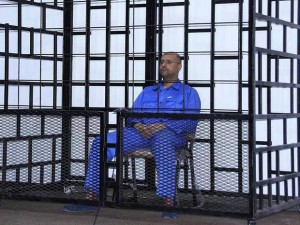
I have also found it irritating for a long time how much heat Tony Blair has faced over Iraq compared to how little attention has been paid to Cameron and Libya. But perhaps the Chilcot Report has set a precedent that will make cowboy imperialist military operations more difficult in the future; and perhaps this Libya report will reinforce that.
On the other hand, the catastrophe of Iraq appeared to teach the government absolutely fuck all about not making the same mistakes again, so maybe not.
One key difference so far between Blair and Cameron is that Blair has at least tried to answer for his actions and to some extent even apologise for what went wrong. On the other hand, when last year the Foreign Affairs Select Committee called on Cameron to give evidence in its inquiry into Libya, he simply informed them he had no time in his schedule.
Getting back to that issue of other solutions having been possible in Libya in 2011, it is a fact that almost all mainstream media omitted any serious reference to the fact that Gaddafi had tried to call for a ceasefire on at least three separate occasions and that Gaddafi had actually tried to step aside and had made attempts to come to an agreement with Western imperialist powers. They were also entirely silent about the reports that Gaddafi’s convoy had been travelling under a white-flag truce at the moment it had been attacked by NATO bombers or that Sarkozy and Clinton have both been accused of personally green-lighting the illegal murder of the 69 year-old in Sirte.
None of those kinds of facts would feature in a report of this kind – though I take nothing away from the value, the intentions and the integrity of the Foreign Affairs Select Committee’s undertaking. Because it demonstrates that there is integrity and honesty among the ranks of British political institutions – even if it is five years too late.
In many countries, there would be no inquiry and no report at all: let alone such a damning one.
But I am genuinely surprised, and impressed, that the committee’s report is so honest and so damning: it may also have prompted David Cameron to step down from his constituency – which he did, literally the day before the report was published – in an attempt to disappear into the sunset and avoid any formal action.
What a pussy.
Britain’s role in the collapse of Libya wasn’t limited to military intervention from the air and didn’t begin merely with Benghazi. British Special Forces had been on the ground in Libya as early as March 2011, coordinating with armed rebel militias and jihadists and were at one point even described as being “disguised as Arabs” and coordinating the “hunt for Gaddafi” and playing “a key role in coordinating the fall of Tripoli” (according to multiple newspaper sources).
And in fact, key organisers and originators of the so-called ‘protests’ in Libya in February 2011 were based in London and France – and French agents were among the rioters and ‘protesters’ who initiated the entire ‘Arab Spring’ uprising against Gaddafi at the very start.
Those are all things this report doesn’t touch on, along with a great many other key details and truths (again, see here).
I would slightly hesitate, however, at the description of Cameron as being responsible for the chaos in Libya and the ‘rise of ISIS’, as this report suggests. I hesitate at that in the same way I hesitate to blame Blair for the sectarian quagmire in Iraq and the rise of ISIS there: because the US invasion of Iraq was going to happen anyway, with or without British involvement.

Blair is still reprehensible for taking Britain into that war: but had he not taken Britain into Iraq, the result would’ve been exactly the same – and, as the Chilcot Report confirmed, Britain had nothing to do with the post-war planning in Iraq, having been sidelined by the Cheney/Rumsfeld regime who proceeded to entirely dismantle and ‘De-Baathify’ the Iraqi state and hand power over to the Shias.
The Blair/Cameron comparison isn’t just lazy either.
When Cameron arrived in Benghazi with Sarkozy in those famous scenes from September 15th 2011 (pictured below) and was greeted by crowds and made grand speeches, it is clear he and Sarkozy were reveling in the moment, getting to act out being great heroes and saviours.
Sarkozy looked like an idiot; but Cameron was clearly seeing himself in the image of Tony Blair being cheered and celebrated in Kosovo over a decade earlier (where, unlike in Iraq, Blair really had been a humanitarian saviour).
Cameron was in fantasy land; and reality has now finally started catching up with him.
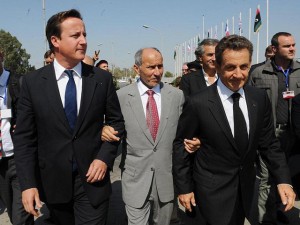
But while Cameron is certainly to blame for Britain’s key role in the nightmare, it remains the case that the intervention in general originated chiefly in France and with Sarkozy. Sarkozy not only was the primary pusher of the intervention, but is also accused of having personally ordered the assassination of Gaddafi in October 2011 (one month after Sarkozy and Cameron had arrived in Benghazi to declare victory and democracy).
It was French agents who who were in Benghazi orchestrating the ‘protests’ that started the entire crisis, French NGO’s that presented the false case for intervention to the UN, and – allegedly – French operatives who were in the bloodthirsty crowd of maniacs that killed Gaddafi. And it had been France that had led the way in providing arms and a vast sum of money to the rebel gangs and jihadists.
When you study most of the information from the time, it is apparent that, of all the governments and officials involved in the decision to destroy Libya, Sarkozy and Hillary Clinton (at that time running the US State Department) were principle conspirators, with Britain and also Barak Obama essentially being drawn into it by Sarkozy and Clinton respectively.
Obama pretty much alludes to this himself, recently blaming Britain and France for the Libyan “shit show”.
Not that Obama, as Commander in Chief and the one who authorised (illegally) US military engagement, is blameless – particularly as he was well aware, from personal correspondence with Muammar Gaddafi himself, that Al-Qaeda and jihadist mobs were behind the rebellion in Libya.
And Obama’s blaming of France and Britain is made somewhat dubious by his utter unwillingness to talk about how horrendous Hillary Clinton’s role was.
It is also, of course, cowardly for a President who authorised the destruction of a country to try to lay the blame on everyone else once everything went so badly.
But they’re all cowards, of course. Including Cameron – who has gone on record as saying that the chaos in Libya is all the fault of Libyans and nothing to do with the foreign military intervention.
That being said, I also maintain that is is important, more generally, to talk about the Deep State elements that guide these affairs rather than to focus solely on public figures like Cameron and Blair – but that’s a subject for a whole other article.
I will say here, however, that the Libya affair, like Iraq, was being planned years in advance and would’ve involved the British Deep State and intelligence community, along with the CIA and other agencies: we know that MI6 was paying Al-Qaeda cells to try to assassinate Gaddafi as far back as 1996 and we know, for example, that the General Khalifa Haftar (who, days ago, just captured oil fields from the UN-backed ‘unity’ government in Libya) was for years living right next to CIA Headquarters in Langley and was air-lifted into Libya in 2011 by the Americans to command the ‘rebels’.
The point being that plans to militarily intervene in Libya and force a regime change would’ve pre-dated David Cameron’s becoming PM by many years and would’ve been worked on by agencies of those permanent state apparatuses known as the ‘Deep State’; and people like Cameron are therefore merely a public face to play out the script while they fill their off-shore bank accounts and await a comfortable retirement. It happened to be Cameron; it could’ve just as easily been some other Prime Minister.
But again, that’s an article for another time.
And while an official report like this one is never going to look into those deeper issues, the likes of Cameron, William Hague, Sarkozy and Clinton, should certainly be held to public scrutiny. And while the British political establishment has shown some willingness to assess these events and question the legitimacy of such actions, both in Iraq and now Libya, I’m not sure to what extent the French and American establishments will ever do the same.
In another sense, the report lets Cameron off the hook too easily by suggesting that he was reckless, in error and misinformed. David Cameron, though perhaps not as much as Hillary and Sarkozy, wasn’t just ill-informed – he was lying his arse off.
He had seen absolutely no evidence of any of the crimes Gaddafi and his government was being accused of – because none existed – and yet he played the part with gusto, parroting the same lies and false stories that Hillary Clinton and others were spreading, and then he landed in Benghazi with Sarkozy and played the hero and saviour, with his chest puffed out and making grand speeches.
And it wasn’t just Cameron, remember, but virtually his entire government and most of parliament. In general, I have wondered if, with the majority of politicians and policy makers, it is less a case of Machiavellian scheming and more a case that most of these people are genuinely misinformed, being fed erroneous information from questionable sources and not having the inclination or wherewithal to bother fact-checking.
Either that, or not having the balls to go against the tide and risk career damage. That makes them either incompetent or cowardly – but no less to blame.
Blaming it entirely on Cameron – just like blaming Britain’s role in the Iraq War entirely on Blair – isn’t helpful either, as it allows the rest of the political and geopolitical machine that pushed for the intervention to be let off the hook.
Most of parliament voted in favor of bombing Libya and most of the media went along with it too, even reveling in the murder of Gaddafi (long after he had already agreed to leave peacefully) – they are all to blame, not just David Cameron.
And in some ways, the media – whose job is to investigate, seek the truth and hold governments and politicians accountable – are more reprehensible in this story than the politicians: because some of the same newspapers and journalists who will now jump all over this story and criticise Cameron were, five years ago, maintaining all of the false propaganda for the sake of war and celebrating Cameron’s actions.
It was the same with Blair and Iraq – and nothing could be more stomach-turning than recently seeing Murdoch’s The Sun newspaper reveling in the crucifixion of Tony Blair for the Iraq invasion, when the same piece-of-shit newspaper once famously labelled the late Charles Kennedy a traitor and a “snake” for daring to question the Iraq War.

My point being that trying to paint a single politician or leader as the reason for the crime is a mistake: it allows too many other people off the hook and it makes it more likely that the same kind of crime will be committed again – because the public figure becomes the Fall Guy, while the rest of the machine remains unnoticed and is able to continue on to the next immoral conspiracy.
_______________
As impressive as this report’s existence is, it of course only goes so far.
And while you might get the impression from some of my posts that I am ‘unpatriotic’ (which I’ve literally been called several times – especially after I put up The Libya Conspiracy e-book) or “anti-British” for talking about the crimes and underhanded conspiracies involving British agencies or state actors, the truth is that I actually immensely dislike having to say those things and would rather be able to trust and speak positive about British political institutions and governments.
Which is why a report like this one – along with Chilcot – provides some balance and reinforces some of my convictions in the integrity of some of the political establishment of this country, even if it is only to an extent.
And while I would rather be governed by a political establishment that would never have allowed what happened in Libya to happen at all; at the same time, I at least take positives from the fact that it is also a political establishment that allows some of those crimes to be brought to light and talked about honestly.
That is some small comfort to me.
None of that will be of any comfort to the people of Libya, however.
_____________
For a more comprehensive, detailed explanation of the foreign ‘intervention’ in Libya – including all of the information the parliamentary report doesn’t or is unable to talk about – download ‘The Libya Conspiracy’ or read it in Google Docs by clicking on the image below.
_____________



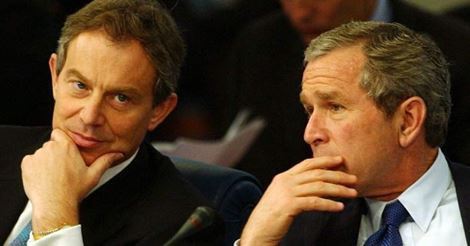
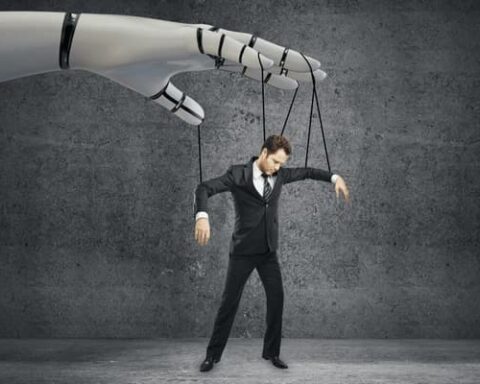
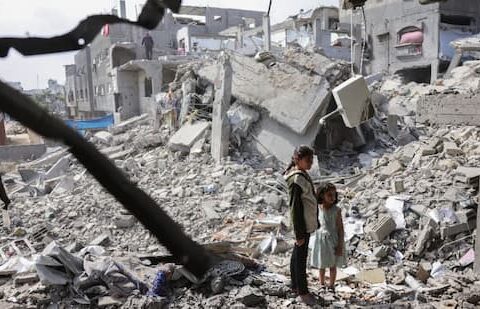
I was surprised to learn about Harvard professor Michael Porter’s business failure in Libya. Porter is, ironically, a sort of god in business academia. Strangely, I’ve noticed he is back in the news recently as an “expert” of some sort (which seems to have been undercut by his involvement in Libya). Not sure where the truth is on this issue. Porter’s company was advising the Gaddafi government (if I remember correctly). Then the company went bankrupt. Maybe Porter was punished for going against the world “order” which toppled Libya. Or maybe Porter was part of that operation (by way of giving Gaddafi bad advice). If the latter is true, then the bankruptcy may have been merely for show.
–Paul
Thanks, Paul – I would have to look more into Michael Porter, as my knowledge is limited. The thing is with events like what happened in Libya; it’s always a really big rabbit hole: there’s much information and dot-connecting that could be done and so many loose ends.
Reblogged this on Susanna Panevin.